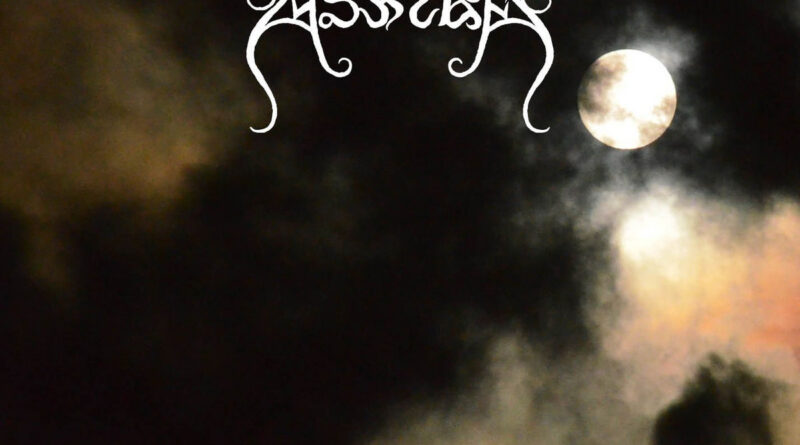ALBUM REVIEW: Wandering Through Time – Ashtar
Switzerland’s ASHTAR are perhaps one of the best and certainly one of the most underappreciated blackened doom acts out there. Since the band’s formation back in 2012 as a one woman act, they showcased an impressive amount of musical depth even early on, with their first two albums, 2015’s Ilmasaari and 2020’s Kaikuja, proving to be incredibly atmospheric and grandiose offerings that established them as one of the most promising acts within a subgenre that is often attempted but seldom mastered. Their third record, Wandering Through Time, continues this creative upward trajectory, serving not only as the band’s best work to date, but also one of the best blackened doom albums of recent times.
Into The Gloom, with its sombre ambience, is an imposing, slow-burning piece of music built around chunky basslines, muscular chords and slick, brooding melodies, setting an ominous and bleak tone straight away. Caustic vocals carve through the denseness of the music, providing a biting, visceral edge that counterpoints the doomier elements perfectly. The music rather suddenly lurches towards black metal, matching up with the acidic vocals with frenetic drums and grating guitar work that make this a fiercer offering, before reverting to the more ponderous style that this began on, proving to be an incredibly ambitious start to the record.
The Submerged Empire has some excellent, droning leads that lend this a melancholic tone, with the arid vocals and steady drumming all crafting a powerful, mid-paced sound that makes room for some hypnotic but extremely catchy riffs which, along with the vocals, inject another touch of black metal into the mix. The addition of soaring violins is another flourish that helps to add depth to an already imaginative sound without being over-bearing or feeling out of place, adding a slight gothic feel that suits the rest of the music really well.
Deep Space And High Waters opts for a murkier guitar sound and percussive drums, which creates a primal, ethereal atmosphere that immediately sets this apart from what preceded it. This is an offering that leans a little more heavily into the black metal within the band’s sound, whilst still retaining some of the thicker doom at their core to make this sound even more monolithic. It’s a grandiose, hazy slab of blackened doom that uses the best components of both genres to its advantage, raising the musical bar significantly in the process. Voices (Collide Again), a fairly short number, serves as an interlude between the album’s first and second halves, with minimalist guitars, spoken word vocals and a folky undercurrent that suits the cavernous drums and haunting ambience that accompany them, making this brief but effective track another incredibly memorable one.
Summoning The Dryads begins life as a relatively straightforward piece of black metal with a pronounced second wave influence, with angular guitars, tight, repetitive drums and hellish, howling vocals, but gradually shifts away from this, incorporating meatier doom hooks and polished melodicism to pepper this dark and dirty sounding song with some lighter, catchier moments, whilst not straying too far from the blackened backbone that makes this track so distinct from the rest. The album’s final track, a magnificent cover of I Want To Die by pioneering thrash/death metallers POST MORTEM, possesses an almost funeral doom quality to it, with vast, droning guitars, sonorous, primitive drums and coarse, snarling vocals that all capture elements of the original whilst putting the band’s own stamp onto this track. It’s a bombastic and engrossing way to close the album, ending on a note that’s every bit as ambitious as the way it began.
Wandering Through Time may very well be one of the most impressive and best written blackened doom records of the year. Where a lot writing in a similar style either segregates the two genres from each other within a song, or worse, create standard doom metal with a rawer production and harsher vocals, ASHTAR have managed to intertwine the two core elements within their sound in a way that makes each of these six tracks interesting and immersive, incorporating elements of drone, funeral doom and even hints of folk along the way to keep the listener on their toes in a way that many bands can’t even hope of achieving. This album also serves as perhaps the band’s most imaginative output to date, and it would be great to hear more music in this vein in the future from this criminally underrated duo.
Rating: 9/10

Wandering Through Time is out now via Eisenwald.
Like ASHTAR on Facebook.
